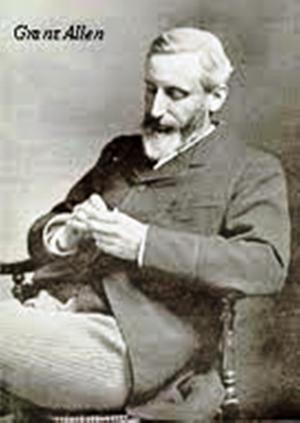| Author: | Caroline Clive | ISBN: | 1230000148614 |
| Publisher: | WDS Publishing | Publication: | July 6, 2013 |
| Imprint: | Language: | English |
| Author: | Caroline Clive |
| ISBN: | 1230000148614 |
| Publisher: | WDS Publishing |
| Publication: | July 6, 2013 |
| Imprint: | |
| Language: | English |
A LONG gallery opening on each side to small rooms gave the inhabitants of St. Cécile's Monastery access both to them and to the larger apartment which was inhabited by the Reverend Mother herself. This latter room was of an oblong shape, very bare of furniture, and of all kinds of decoration. The windows were without curtains; there was but one table, and on it stood a crucifix. Two benches by the wall were all the accommodation for sitting down. The one figure which occupied the chamber required not even so much, for she was kneeling in the middle of the floor, with support of no kind, and quite upright, except her head, which was bowed under the thick cloth or veil hanging over it, and which concealed even her hands.
"She is praying," said a nun, looking into the room, "you had better wait;" and these words she addressed to a young girl who accompanied her, in the ordinary tone of conversation, such as befitted the occupations of the place.
The young girl advanced into the room, and herself went down on her knees at a little distance from the Superior, running over her beads while she waited till she might speak. She was very simply dressed in white, with parted hair, like a child, but abundant and beautiful, falling low on low shoulders and delicately rounded waist. Her face was fair, with very little colour, and the eyes, which she raised often, while she slid her beads through her fingers, had a simplicity of religious expression, such as fades even in those happy enough once to possess it, when the habits of a pious childhood come to be contradicted by those of the general world.
When the Superior rose from her knees, so did Elinor, and advanced towards the elder lady, who kissed her on the forehead, and gave a blessing. The conversation was in French, though the girl was English, for it was in a Convent of Brittany that the scene took place. It did not begin in the tone supposed to be exclusively that of Lady Abbesses.
"Has Louisa finished the marking of all your shifts, my dear? Are they ready?"
"Yes, dear Mother, and packed up," said Elinor.
"And have you heard whether Madame Néotte is come."
"Yes, that is what I came here to tell you, as you desired."
"Then to-morrow you leave us," said the Superior, in a melancholy voice.
"It is you who have determined it," said Elinor.
"Ah, my child! your guardian believes it best; it is his doing."
"And I shall come back," said the girl.
"No, dear, you will never do that. I know your feelings better than you do. It will be a hard parting with us all, but when you are away you will be glad. You will enjoy the world, you will choose it, and you will be welcome in it. No; you will never wish to come back here. I have known many gentle girls like you, who could not find what they wanted here. They require to be carried along—not to walk alone, as in a convent."
A LONG gallery opening on each side to small rooms gave the inhabitants of St. Cécile's Monastery access both to them and to the larger apartment which was inhabited by the Reverend Mother herself. This latter room was of an oblong shape, very bare of furniture, and of all kinds of decoration. The windows were without curtains; there was but one table, and on it stood a crucifix. Two benches by the wall were all the accommodation for sitting down. The one figure which occupied the chamber required not even so much, for she was kneeling in the middle of the floor, with support of no kind, and quite upright, except her head, which was bowed under the thick cloth or veil hanging over it, and which concealed even her hands.
"She is praying," said a nun, looking into the room, "you had better wait;" and these words she addressed to a young girl who accompanied her, in the ordinary tone of conversation, such as befitted the occupations of the place.
The young girl advanced into the room, and herself went down on her knees at a little distance from the Superior, running over her beads while she waited till she might speak. She was very simply dressed in white, with parted hair, like a child, but abundant and beautiful, falling low on low shoulders and delicately rounded waist. Her face was fair, with very little colour, and the eyes, which she raised often, while she slid her beads through her fingers, had a simplicity of religious expression, such as fades even in those happy enough once to possess it, when the habits of a pious childhood come to be contradicted by those of the general world.
When the Superior rose from her knees, so did Elinor, and advanced towards the elder lady, who kissed her on the forehead, and gave a blessing. The conversation was in French, though the girl was English, for it was in a Convent of Brittany that the scene took place. It did not begin in the tone supposed to be exclusively that of Lady Abbesses.
"Has Louisa finished the marking of all your shifts, my dear? Are they ready?"
"Yes, dear Mother, and packed up," said Elinor.
"And have you heard whether Madame Néotte is come."
"Yes, that is what I came here to tell you, as you desired."
"Then to-morrow you leave us," said the Superior, in a melancholy voice.
"It is you who have determined it," said Elinor.
"Ah, my child! your guardian believes it best; it is his doing."
"And I shall come back," said the girl.
"No, dear, you will never do that. I know your feelings better than you do. It will be a hard parting with us all, but when you are away you will be glad. You will enjoy the world, you will choose it, and you will be welcome in it. No; you will never wish to come back here. I have known many gentle girls like you, who could not find what they wanted here. They require to be carried along—not to walk alone, as in a convent."















